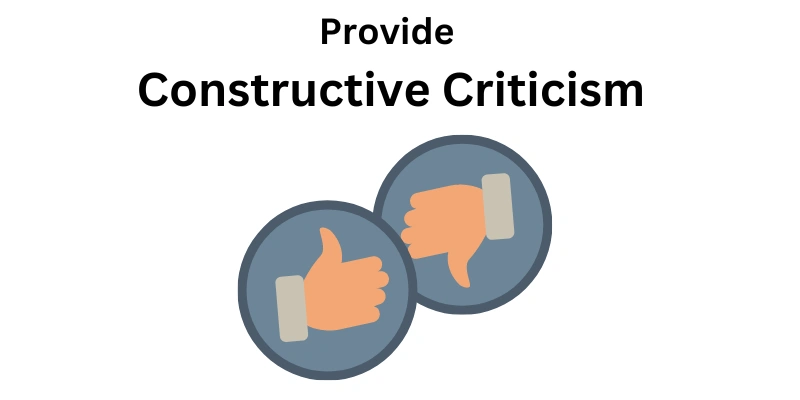11 Common Mistakes Reviewers Make When Writing ARC Reviews And Tips To Avoid Them
Updated: 12 Dec 2024
444
When I wrote my first ARC review, I made nearly every mistake in the book—spoilers, vague feedback, and missed deadlines. Here I will share what I’ve learned to avoid those pitfalls. Advanced reader copy reviews are vital for authors and publishers, but small missteps can undermine their impact.
Advanced Reader Copies (ARCs) are an essential part of book marketing, offering reviewers the chance to shape early impressions and spark excitement for upcoming releases. However, writing an ARC review isn’t just about sharing your thoughts—it’s about delivering thoughtful, engaging feedback that resonates with potential readers and supports the book’s success.

Let’s uncover the 11 most common mistakes reviewers make and how you can avoid them.
11 Common Mistakes Reviewers Make When Writing ARC Reviews
Now I will share with you the 11 most common mistakes that ARC reviewers make while writing an ARC review:
- Skimming the Book Instead of Reading Fully
- Including Major Spoilers Without Warnings
- Focusing Only on Personal Preferences
- Ignoring the Author’s Intentions
- Writing Vague or Generic Reviews
- Critiquing Formatting or Errors in ARCs
- Comparing the Book Unfairly to Others
- Not Disclosing That It’s an ARC Review
- Being Overly Harsh or Negative
- Failing to Meet Deadlines for Reviews
- Forgetting to Share Reviews Across Platforms
So let’s elaborate on each of the above mistakes:
1. Skimming the Book Instead of Reading Fully
It’s tempting to rush through a book, especially when you’re juggling multiple ARCs. But skimming means you’re likely to miss important plot points, character development, or subtle themes.
Why Thorough Reading Is Critical:
Reading the entire book allows you to provide a complete and fair evaluation. It ensures your review is accurate and well-rounded, reflecting the author’s full intent.
Consequences of Missing Key Points:
- You might misinterpret the story, leading to an unfair critique.
- Readers relying on your review might feel misled, damaging your credibility as a reviewer.
| Tip: |
|---|
Dedicate enough time to each ARC and take notes while reading to capture key details for your review. |
2. Including Major Spoilers Without Warnings
Spoilers can ruin the reading experience for others. Sharing crucial plot twists or endings without warning can frustrate potential readers and even harm the book’s sales.
The Negative Impact of Spoilers:
- Readers lose the element of surprise, which is often a key part of enjoying a book.
- Spoilers can discourage people from picking up the book altogether.
How to Properly Discuss Spoilers:
- Use clear warnings, such as “Spoiler Alert,” before mentioning any details that might ruin the story.
- Consider creating a spoiler-free section first, then discussing spoilers in a marked section at the end.
3. Focusing Only on Personal Preferences
While it’s natural to include your opinions, focusing solely on what you like or dislike can make your review less valuable to a broader audience.
Avoiding Subjective Critiques:
Instead of saying, “I didn’t like the genre,” explain what specifically worked or didn’t work. For example, “The pacing felt slow in the middle, which may not appeal to some readers.”
Balancing Personal Opinions with Objectivity:
- Acknowledge that your preferences might differ from those of other readers.
- Highlight elements that work well for the book’s target audience, even if they don’t appeal to you.
4. Ignoring the Author’s Intentions
Every book is written with a purpose, whether it’s to entertain, inform, or inspire. Ignoring this context can lead to unfair criticism.
Understanding the Genre and Target Audience:
- A cozy mystery isn’t meant to have the same intensity as a thriller.
- Knowing the genre helps you evaluate if the book meets its goals.
Avoiding Unfair Criticism:
- Don’t judge a romance novel for not having enough action or a fantasy for being too imaginative.
- Consider what the book sets out to achieve and review it within that framework.
5. Writing Vague or Generic Reviews
Reviews like “It was good” or “I didn’t like it” don’t give readers much to go on. They lack the depth and detail that make a review helpful.
| Examples of Vague Statements: |
|---|
|
Importance of Detailed Explanations:
- Instead of saying, “The characters were okay,” explain why: “The protagonist felt underdeveloped, but the side characters were vibrant and relatable.”
- Specific examples make your review more engaging and credible.
6. Critiquing Formatting or Errors in ARCs
ARCs are pre-release copies, so they may have typos, incomplete formatting, or missing content. Focusing on these aspects can distract from the story’s merit. Learn to design an Advanced Reader Copy.
Recognizing That ARCs Are Unfinished:
- Publishers often clarify that errors will be corrected in the final version.
- Your role as a reviewer is to assess the content, not the presentation.
What to Focus On Instead:
- Evaluate the plot, characters, themes, and pacing.
- Mentioning minor issues is fine, but don’t let them dominate your review.
7. Comparing the Book Unfairly to Others
It’s natural to draw comparisons but unfairly stacking a book against unrelated works can do more harm than good.

Avoiding Unnecessary Comparisons:
- Don’t compare a debut author to a bestseller unless the comparison is constructive.
- Highlight the book’s unique qualities instead of overshadowing them with unrelated benchmarks.
Acknowledging the Book’s Individuality:
Every book has its strengths. Focus on what makes this book stand out rather than what it lacks compared to others.
8. Not Disclosing That It’s an ARC Review
Transparency is essential. Failing to mention that you received an ARC can lead readers to question the authenticity of your review. Read our blog post about ethical guidelines for Advanced Reader Copy Reviewers.
Importance of Transparency:
- Readers should know the context of your review.
- Publishers appreciate honesty about the source of the book.
How to Include a Disclaimer:
Add a simple note at the beginning or end of your review: “I received this ARC from [publisher] in exchange for an honest review.”
9. Being Overly Harsh or Negative
No book is perfect, but overly harsh reviews can discourage readers and authors alike.

How Harsh Criticism Can Backfire:
- Readers may view your review as biased or unfair.
- Authors and publishers may hesitate to offer you future ARCs.
Balancing Criticism with Constructive Feedback:
- Instead of saying, “The writing was awful,” suggest improvements: “Some sentences felt repetitive, but the dialogue was engaging.”
- Mention at least one positive aspect, even in critical reviews.
10. Failing to Meet Deadlines for Reviews
Timely reviews are crucial for ARCs, as they contribute to pre-release buzz and marketing. Check out our blog about ARC rules.
Why Timeliness Matters:
- Late reviews miss the opportunity to influence early readers and sales.
- Publishers rely on reviewers to support their marketing timeline.
| Tips for Managing Deadlines: |
|---|
|
11. Forgetting to Share Reviews Across Platforms
Writing a great review isn’t enough if it doesn’t reach your audience. Limiting your review to one platform reduces its impact.

Why Sharing Reviews Widely Matters:
- Platforms like Goodreads, Amazon, blogs, and social media amplify your review’s reach. (Learn more about the top 5 Advanced reader copy websites.)
- Each platform has a unique audience, increasing visibility for the book.
Maximizing the Impact of Your Review:
- Share your review on at least two or three platforms.
- Use relevant hashtags or tag the author and publisher to boost engagement.
By avoiding these common mistakes, you can elevate your ARC reviews and make a meaningful impact in the book community. A thoughtful, well-crafted review benefits not only the author but also your credibility as a reviewer.
Tips for Writing Better ARC Reviews
Writing impactful ARC reviews requires more than just sharing your feelings about a book. To stand out and provide value, it’s crucial to focus on specifics, structure, and constructive feedback.

Here are some actionable tips to elevate your reviews:
- Provide Specific Examples:
Instead of saying, “The characters felt flat,” explain why. For instance, “The protagonist lacked depth because their motivations weren’t clearly defined in key scenes, like when they decided to join the rebellion.” Specific examples help your readers understand your perspective and make your feedback meaningful. - Be Constructive:
If something didn’t work for you, frame it in a way that offers improvement. For example: “While the pacing was slow in the first half, tightening the dialogue in some chapters could make it more engaging.” Constructive criticism shows respect for the author’s work while highlighting areas for growth. - Highlight the Positives:
Even in critical reviews, point out what worked well. For instance, “The world-building was immersive, with vivid descriptions of the magical cities that brought them to life.” Balancing critique with praise ensures your review is fair and encourages readers to form their own opinions. - Focus on Key Aspects:
Review the book holistically by addressing its plot, characters, pacing, writing style, and themes. For example, you might say, “The plot twists kept me guessing, but the pacing slowed during the middle chapters, which impacted the suspense.” Covering these elements makes your review thorough and useful. - Use a Clear Structure:
Organize your review for better readability. Start with an introduction summarizing the book and its premise. In the body, discuss the pros and cons with examples. Conclude with your overall impression and whether you’d recommend the book. A structured review helps readers quickly grasp your points.
Benefits of Improving Your ARC Review Process
Investing effort into improving your ARC review process has significant benefits, not only for your audience but also for your relationships with publishers, authors, and the book community.

- Building Trust:
Detailed, thoughtful reviews demonstrate your reliability to publishers and authors. They’re more likely to trust you with future ARCs when they see you take the process seriously. - Increasing ARC Approval Chances:
Publishers often prioritize reviewers who write professional and balanced reviews. Refining your skills can boost your chances of receiving highly anticipated ARCs. - Helping Readers:
Well-written reviews provide readers with the insights they need to decide whether a book aligns with their preferences. Your reviews can influence their buying decisions, making you a trusted voice in the book community.
Conclusion
ARC reviews play a critical role in shaping a book’s success and connecting readers with stories they’ll love. By avoiding common mistakes and applying these tips, you can write reviews that are impactful, fair, and professional.
Remember, reviewing is an evolving skill. Continuously improving your process not only strengthens your credibility but also enhances your enjoyment of sharing your love for books.
Have you made any of these mistakes before? Share your thoughts, experiences, or tips in the comments below! Let’s discuss how we can all grow as ARC reviewers together.
Please Write Your Comments